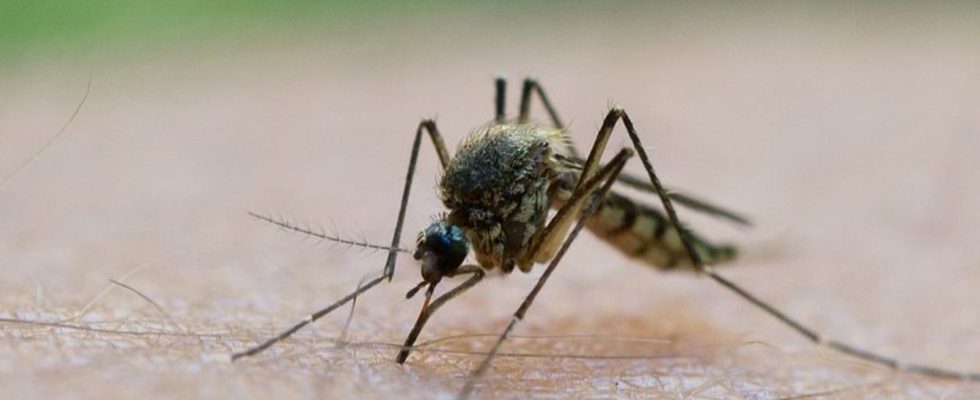Warm weather
Early start to mosquito season
Weather-related: The first mosquitoes have already hatched. photo
© Patrick Pleul/dpa-Zentralbild/dpa
Their stings are annoying and the buzzing can keep you from sleeping. Mosquito season has started – earlier than usual. The Asian tiger mosquito has also already established itself in some places.
Mosquito season starts particularly early this year. Forest and meadow mosquitoes are already hatching, as Doreen Werner from the Leibniz Center for Agricultural Landscape Research (ZALF) in Müncheberg said at the request of the German Press Agency.
And also house mosquitoes, which are considered capable of flight Mosquitoes hibernate and have already laid their eggs. The early start of the mosquito season is due to the weather, and this often only happens at the beginning of May, explained Werner. “It’s all three or four weeks earlier this year.”
The normal development of mosquitoes comes to a standstill in winter. In the case of house mosquitoes, the development from the egg to the mosquito capable of flying takes three to four weeks under the current weather conditions. In summer this time is much shorter and only lasts seven to ten days.
It is a misconception that there are fewer mosquitoes after a frosty winter, said Werner. Mosquitoes have a “built-in antifreeze” that helps the hibernating species survive the cold season. On the other hand, it is energy-consuming if it freezes and thaws again and again. Mosquitoes could then starve.
“Things are going well for the mosquitoes at the moment”
In summer, however, mosquitoes need it to be humid and warm in order to build up high population densities, said Werner. “Things are going well for the mosquitoes at the moment.” A female mosquito can lay 1,500 to 2,000 eggs in her lifetime, depending on temperature, breeding opportunities and food availability. Over the course of the season there is an overlap between generations. The population maximum is reached in August. An exact prediction is not possible. Dryness and drought can harm the mosquito population; the larvae do not develop as quickly even in cold weather.
Werner is involved in the Mosquito Atlas: In the citizen science project, citizens can help collect scientifically usable data by sending in mosquitoes. Data is also being collected on the Asian tiger mosquito, a species of mosquito introduced from Asia that has now established itself in some regions of Germany.
Tiger mosquitoes are considered slow to fly and their radius of action is only a maximum of 300 meters, said Werner. Other mosquitoes, such as flood mosquitoes, can fly several kilometers. If the Asian tiger mosquito cannot find an opportunity to lay eggs within its radius, it is still possible to combat it once a population is detected. That’s why sending in the mosquitoes is so important.
Tiger mosquitoes – “nasty, little, aggressive biters”
The black and white Asian tiger mosquito (Aedes albopictus) can transmit various pathogens such as dengue, chikungunya and Zika viruses. However, these pathogens have not yet been transmitted by mosquitoes in Germany. But the tiger mosquito bites alone are unpleasant: they are “nasty, little, aggressive biters,” said Werner.
Even though mosquitoes annoy many people, the insects and their larvae are an important part of the food web, for example for songbirds, as the German Nature Conservation Association (Nabu) emphasizes. Spiders, fish, amphibians and dragonflies also rely on the presence of mosquitoes. A disappearance of mosquitoes from the ecosystem would have serious consequences for a large number of animals.

